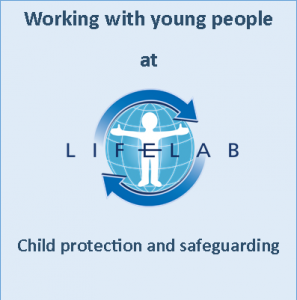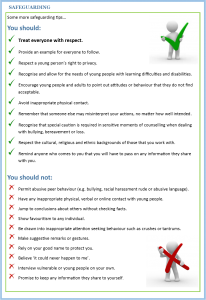|
One particular training need that may be identified is Safeguarding. The University Safeguarding Children and Vulnerable Adults Code of Practice states that: “It is important to plan the work of an organisation that has contact with children, young people and vulnerable adults in such a way as to minimise situations in which abuse may occur. Therefore at the University of Southampton all staff that have regular one-to-one contact with children, young people or vulnerable adults should adhere to the following code of conduct to ensure safety both for themselves and the young person.” The University of Southampton ‘code of conduct’ referred to can be viewed in full here.
Below is a user friendly guide to Safeguarding put together by the LifeLab team. If a child or young person discloses to you that they have or are being abused by someone or you suspect a child or young person is being abused or neglected:
If you receive an allegation about a member of staff or yourself:
Please note: It will not be necessary for every member of staff involved to obtain a DBS check as long as they will not be left alone with any pupils or vulnerable adults. However, some schools require any adult entering the school to have one and if working with children will be a regular part of your work you may want to arrange one (see the Glossary entry for DBS for more information and the essential documents section of Activities and Structure).
|
Click on the image below to expand for more safeguarding tips or follow this link for a printable pdf.
Back to Training…
…On to Activities and Structure.

